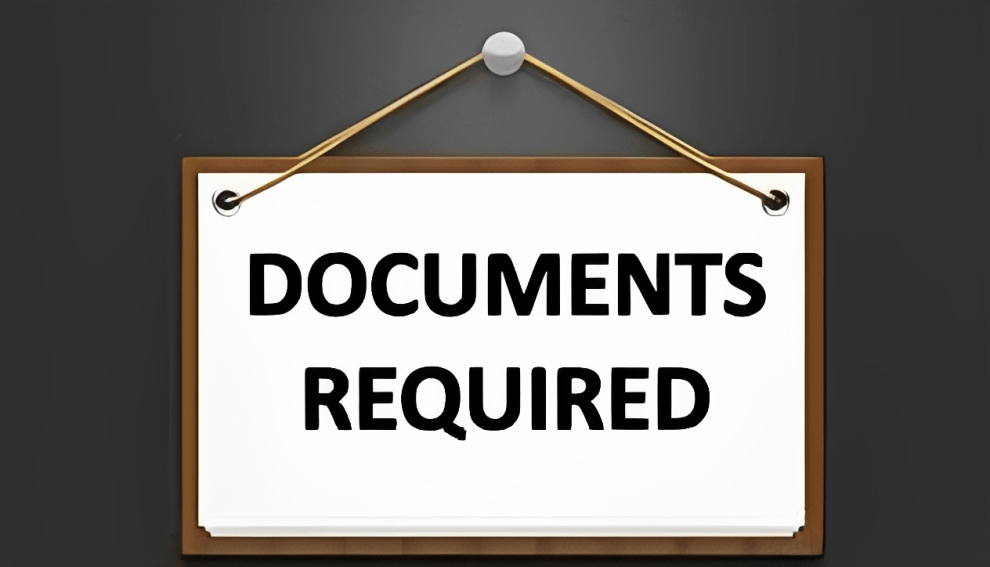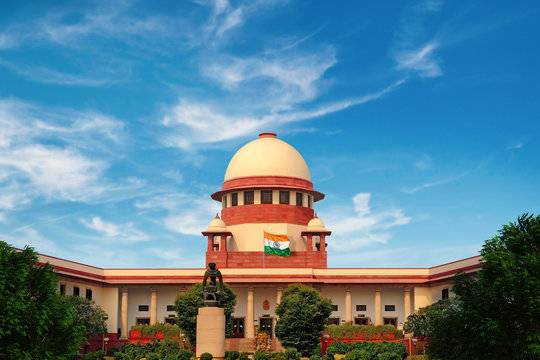
GAG LAWYERS -
GROVER & GROVER ADVOCATES

GAG LAWYERS -
GROVER & GROVER ADVOCATES

Food and Drug Law in India: The Food and Drug Law in India is a set of regulations formulated by the Government of India in order to protect and promote public health. This law ensures that all food and drugs sold in India are safe and meet the prescribed standards of quality. The law also regulates the manufacture, sale, distribution, and use of food and drugs in the country. The Food and Drug Administration (FDA) is the government body responsible for ensuring that the law is complied with.
The Food and Drug Law in India sets out the standards and requirements for food and drug products in the country. It defines the requirements for the packaging, labelling, and storage of food and drug products. It also covers the safety of food and drug products, their ingredients, and the process of their manufacture. This law also provides guidelines for the advertising and promotion of food and drug products.
The Food Drug Law in India is designed to ensure that food and drug products are safe, of good quality, and meet the prescribed standards. The law also ensures that food and drug products are properly labelled and that their ingredients are accurately listed on the labels. The law also prohibits the adulteration of food and drugs and provides for stringent penalties for those who violate it.
The Food Drug Law in India is applicable to all food and drug products that are manufactured, imported, sold, and distributed in India. All food and drug products must comply with the provisions of the law. The law is enforced by the FDA, which is responsible for monitoring and inspecting food and drugs for compliance. The FDA also has the power to seize and destroy food and drugs that do not comply with the law.
The Food Drug Law in India is an important tool for protecting and promoting public health in the country. It ensures that food and drugs are safe and of good quality and that they meet the prescribed standards. The law also provides stringent penalties for those who violate it, which serves as a deterrent to those who wish to adulterate food and drugs.

The Food and Drug Law in India is a set of legal regulations enacted to ensure the safety of food and drugs in the country. This law is essential for the health and safety of citizens, as it ensures that the food and drugs produced and consumed in India are of the highest quality and standards. The law also provides a framework for the regulation of the manufacturing, labelling, sale, distribution, and import of food and drugs in India.
The Food and Drug Law in India provides citizens with certain rights and obligations. Consumers have the right to be informed about the safety, quality, and efficacy of food and drugs, as well as the right to be protected from any false or misleading claims. Consumers also have the right to access accurate information about the ingredients and side effects of food and drugs.
In addition to providing consumers with rights, the Food and Drug Law in India also imposes certain obligations. Manufacturers, sellers, and distributors of food and drugs must comply with the regulations laid out in the law. They must ensure that their products meet the safety and quality standards set by the law and must label their products accurately and truthfully.
The Food and Drug Law in India also requires manufacturers, sellers, and distributors to report any adverse events or reactions to the drugs or food that they produce or sell. This is to ensure that any potential risks are reported to the authorities in a timely manner. Furthermore, the law provides for the enforcement of penalties for any violations of the regulations.
Overall, the Food and Drug Law in India provides important rights and obligations to citizens and businesses alike. By ensuring that food and drugs are safe and of the highest quality, the law helps to protect the health and safety of the citizens of India. It also provides a framework for the regulation of the manufacturing, labelling, sale, distribution, and import of food and drugs.

1. The first step in filing a case related to food and drug laws in India is to gather all the relevant evidence and documents related to the case. This includes collecting any documents related to the product in question, such as labels, packaging, or advertisements. It also includes any medical records that may be relevant to the case.
2. The second step is to research the relevant laws and regulations that may be applicable to the case. This involves familiarising oneself with the Food Safety and Standards Act of 2006 and other related pieces of legislation. It is also important to review any notifications or regulations that may be relevant to the case.
3. The third step is to draught a complaint. This complaint should include all the relevant details about the case, including the facts, materials, and evidence. It should also include the legal points that the complainant wishes to make.
4. The fourth step is to file the complaint with the relevant authorities. This can be done in person or through an online portal. It is important to ensure that all the necessary documents and evidence are included in the complaint.
5. The fifth step is to attend the hearings and respond to the questions asked by the court. It is important to be prepared for the hearings and to be able to answer any questions that may be posed. The outcome of the case will depend on the quality of the evidence presented and the arguments made in court.

The Food Safety and Standards Act 2006, along with its subsequent amendments, sets out the charges, penalties, and punishments for food and drug law violations in India. These violations can range from misbranding, adulteration, and the sale of unsafe or contaminated food to the manufacture, distribution, and sale of drugs without proper authorization. The charges, penalties, and punishments for food and drug law violations in India are severe and are meant to deter violators from engaging in such activities.
Under the Food Safety and Standards Act 2006, any person found guilty of violating the food or drug law will be subject to fines and/or imprisonment. The fine for a first offence can range from Rs 10,000 to Rs 5 lakh, depending on the severity of the offence. In the case of a second or subsequent offence, the fine can range from Rs 50,000 to Rs 10 lakh.
A fine of up to Rs 20 lakh can be imposed in the case of a third or subsequent offence. In addition, any person found guilty of violating the food or drug laws in India may be subject to imprisonment. The sentence can range from 6 months to 7 years, depending on the severity of the offence. If a person is found guilty of a repeat offence, the sentence can range from 1 year to 10 years. The imprisonment can be further extended if the offence is of a serious nature.
Apart from fines and imprisonment, the Food Safety and Standards Act of 2006 also provides for other forms of punishment. These include confiscation of the goods or articles involved in the offence, seizure of any equipment or materials used for the manufacture, storage, or distribution of the adulterated or contaminated food or drugs, and cancellation of any licence or authorization related to the offence.
The Food Safety and Standards Act 2006 also provides for the suspension or cancellation of registrations or licences issued by the Food Safety and Standards Authority of India or any other authorised body under the Act. In addition, the Act also provides for the suspension or cancellation of any premises or establishments involved in the offence. The suspension or cancellation of registrations or licences will be effective until the violation is rectified or until the period of suspension or cancellation has expired.

The role of a food and drug lawyer in food and drug law in India is an important one. A food and drug lawyer helps to ensure that the laws and regulations governing food and drug safety in India are properly interpreted and applied. Food and drug lawyers provide legal advice and representation on a wide range of issues related to food and drug safety. A food and drug lawyer also helps draught and review the legal documents that are necessary for the regulation of food and drug safety in India, including laws, regulations, policies, and guidelines.
Food and drug lawyers play an essential role in advocating for the safety of food and drugs in India. Food and drug lawyers work closely with public health authorities and other stakeholders to ensure that the food and drug laws are properly enforced and that the public is adequately protected. Food and drug lawyers also provide legal advice to food and drug companies, helping them understand their legal obligations and rights.
Food and drug lawyers also help to ensure that food and drug companies understand the implications of their actions. For example, a food and drug lawyer may assist companies in obtaining the necessary licences and permits to manufacture and distribute food and drugs in India. A food and drug lawyer may also help negotiate contracts and advise companies on the best ways to ensure compliance with the food and drug laws. In addition, a food and drug lawyer may provide legal advice to consumers on the safety of food and drugs.
Food and drug lawyers also help to resolve disputes between food and drug companies and consumers. A food and drug lawyer may represent either side in a dispute and provide legal advice on the best way to proceed. Food and drug lawyers also work to ensure that any settlements or judgements are fair and just. In addition, a food and drug lawyer may initiate legal proceedings on behalf of consumers if they feel that their rights have been violated.
In summary, food and drug lawyers play an important role in food and drug law in India. Food and drug lawyers help to ensure that the laws are correctly interpreted and applied and that food and drug companies understand their legal obligations. Food and drug lawyers also provide legal advice to consumers and work to resolve disputes between food and drug companies and consumers. A food and drug lawyer also initiates legal proceedings on behalf of consumers when necessary.

If you are filing a case related to food and drug laws in India, you need to make sure that you have all the necessary documents in place. These documents provide the necessary evidence to prove your case and help the court reach a decision. The documents required to file a case related to food and drug law in India include medical records, test results, food labels, and other relevant evidence.
Medical records are an important document in any case related to food and drug law. These records provide evidence about the effects of a particular drug or food item on a person’s health. Medical records can be obtained from a doctor or hospital. These records must include the patient’s diagnosis, treatment, and any other relevant information.
Test results are also important documents in a case related to food and drug laws. These results can be obtained from an authorized laboratory. The results provide evidence of the composition of the food item or drug and its effects on the body. These results must be accurate and up-to-date.
Food labels are also important documents in a case related to food and drug law. These labels provide information about the ingredients used in the food item, the manufacturing process, and any other relevant information. Food labels must be accurate and up-to-date.
Other documents that may be required in a case related to food and drug law include the reports of experts, declarations made by witnesses, and any other relevant evidence. All these documents should be properly collected and organized for the court to reach a decision.

Grover & Grover, Advocates and Solicitors, is one of the leading law firms in India and is highly experienced in handling cases related to food and drug law. With a team of qualified and experienced legal professionals, they are capable of providing legal guidance and representing clients in various areas of food and drug law. The team is well-versed in the nuances of Indian food and drug law and can advise and represent clients in any legal matter related to it.
Grover & Grover Advocates and Solicitors also assist clients in obtaining permission from the government for the manufacture, sale, and distribution of food and drugs. They provide advice on how to comply with the various laws and regulations related to food and drug safety, and they can recommend strategies to minimize liability in the event of a violation. In addition, they provide legal representation for food and drug safety issues in the courts of India.
Grover & Grover, Advocates and Solicitors, offer a comprehensive range of services related to food and drug law. They help clients draught and negotiate agreements with food and drug manufacturers, distributors, and retailers. They also provide advice on food and drug labelling requirements, as well as review, analyze, and advise on food and drug advertising. They also assist in the development of food and drug safety standards and regulations.
Grover & Grover, advocates and solicitors, also handle cases related to food and drug contamination. They represent clients in cases arising from contamination of food and drugs, and they can provide advice on how to prevent and mitigate contamination. They can also advise on the best way to respond to a contamination incident and help clients develop food and drug safety plans.
Grover & Grover, Advocates and Solicitors, are experienced in food and drug law and can provide legal advice and guidance on various matters related to it. Their team is knowledgeable about the nuances of Indian food and drug law and can help clients navigate the complexities of the law. Clients can rely on Grover & Grover, Advocates, and Solicitors to provide comprehensive legal services related to food and drug law in India.

1. In the case of Dr. Manoj Kumar v. Union of India, the Supreme Court held that people have the right to know what is in their food and drugs. The Court held that food and drugs are essential for life and that people have the right to know what is in them. This was an important case as it established that people have the right to know what is in the food and drugs they consume.
2. In the case of Cipla Ltd. v. National Pharmaceutical Pricing Authority, the Supreme Court upheld the National Pharmaceutical Pricing Authority’s (NPPA) power to regulate the prices of drugs sold in India. This case was important as it established the authority of the NPPA to regulate the prices of drugs sold in India.
3. In the case of Ranbaxy Laboratories Ltd. v. Union of India, the Supreme Court held that the government has the power to regulate the sale and distribution of drugs in India. This was an important case as it established the government’s right to regulate the sale and distribution of drugs in India.
4. In the case of Union of India v. GlaxoSmithKline Pharmaceuticals Ltd., the Supreme Court held that drug manufacturers have to provide information regarding the side effects and contraindications of their drugs to the public. This was an important case as it established the right of the public to have access to adequate information regarding the side effects and contraindications of drugs they are consuming.
5. In the case of Ranbaxy Laboratories Ltd. v. Union of India, the High Court of Delhi held that drug manufacturers have to provide adequate information regarding the composition and effects of their drugs to the public. This was an important case as it established the right of the public to have access to adequate information regarding the composition and effects of drugs they are consuming.